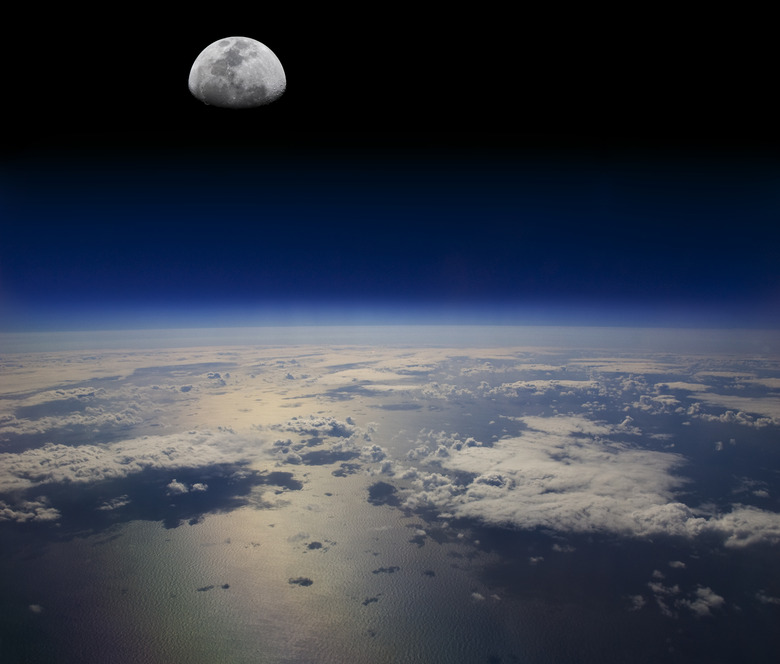What Effect Did The First Moon Landing Have On The World?
Even though it happened in 1969, the first moon landing had a lasting effect on the world. Apollo 11 represented the culmination of decades of work for NASA. John F. Kennedy's dream of putting a person on the moon seemed foolish to many, but it remains one of the highest achievements of human work and ingenuity.
TL;DR (Too Long; Didn't Read)
The moon landing not only represented advances in technology, but was a symbol for human achievement. The landing has also had some interesting effects among conspiracy theorists, and theories that the landing was faked linger on.
Technology
Technology
The technological advances needed for the Apollo program accelerated innovations in rockets, computers and other space-age materials. The Mercury and Gemini missions provided the base for Apollo's systems, but life support, guidance and computer systems needed upgrades to sustain human life for the extended trip. Top scientists from around the world worked together in both the U.S. and Soviet nations to solve these problems. TV broadcasts of the first moon landing inspired new generations of people to become scientists because new things seemed possible. The technology of Apollo was advanced to enable development of space stations and new spacecraft.
Unity
Unity
The first moon landing united people, if only for a brief time. As Neil Armstrong stepped out of the lunar lander, 600 million people watched on television. People all around the world knew the importance of the events taking place and didn't want to miss a thing. Humans put aside their differences and shared the moment. The images of Earth rising on the moon's horizon made the planet look small, fragile and alone out in space. At a time when the war in Vietnam and the Cold War dominated the evening news, images from the first moon landing provided a moment of escape.
Dissent
Dissent
Not everyone saw the moon landing as a positive occurrence. With so much war and tension in the world, many people viewed the race to the moon as a waste of national resources. Dissenters wondered why the money wasn't going to feed hungry people or end the war, or they just didn't see what landing on the moon offered mankind. In fact, the Apollo missions following the first landing received less attention. Those opposed to the mission saw the loss of interest and the short life span of the program as proof of it having been a frivolous undertaking.
Conspiracy
Conspiracy
Perhaps no group keeps the memories of the first moon landing alive more than conspiracy theorists. Supposed discrepancies in the footage of the moon landing led some to believe the landing never took place. The lack of stars in the photos, the waving of the flag the astronauts planted and allegations that moon rocks were faked fueled the fires of conspiracy. No stars showed up in pictures because the bright lunar surface washed them out, the flag waved because the astronauts twisted the pole into the ground and moon rocks show evidence of forming in a low-gravity environment. Even though most people believe scientists adequately rebut the charges of a faked landing, some still refuse to trust the evidence given and assert that the entire landing was filmed in a movie studio.
Cite This Article
MLA
Linkenhoker, Eric. "What Effect Did The First Moon Landing Have On The World?" sciencing.com, https://www.sciencing.com/effect-first-moon-landing-world-8789492/. 20 April 2018.
APA
Linkenhoker, Eric. (2018, April 20). What Effect Did The First Moon Landing Have On The World?. sciencing.com. Retrieved from https://www.sciencing.com/effect-first-moon-landing-world-8789492/
Chicago
Linkenhoker, Eric. What Effect Did The First Moon Landing Have On The World? last modified March 24, 2022. https://www.sciencing.com/effect-first-moon-landing-world-8789492/
